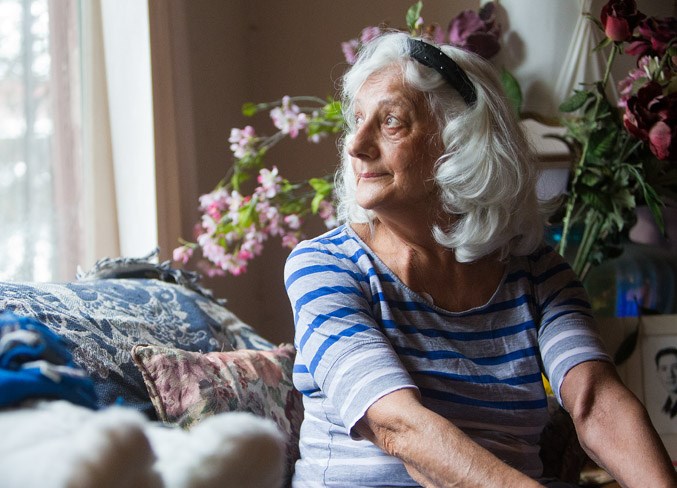One St. Albert woman is turning to the public for a new kidney.
Margaret Mackevic, 78, has been receiving dialysis three times a week for over a year. Both kidneys have been steadily failing over the last decade, prompted by high blood pressure.
“I don’t want to die, I want to live some more. I’ve got family, I’ve got grandchildren. I just want to feel better,” she told the Gazette.
Tired of constantly travelling to the Royal Alexandra Hospital in Edmonton to receive four-hour treatments throughout the week, she’s reaching out to the community to find a donor.
Mackevic is also on a mission to warn people of the dangers of kidney disease – also known as renal disease – and how to prevent developing it.
Living with kidney disease
According to the Kidney Foundation of Canada, there are two forms of kidney disease: chronic and acute. Acute kidney failure is the result of the organs suddenly being unable to filter waste product from the blood. It usually develops within a few days.Chronic kidney disease, on the other hand, is a slow-developing disease. Other medical conditions, such as high blood pressure, bladder blockage and diabetes, cause the disease to develop. Once someone gets kidney disease, the condition is irreversible and causes the kidneys to lose function over a number of years.
Eventually, the patient will need to go on dialysis or get a kidney transplant.
“Patients who are on dialysis, they’re surviving better, so more people end up staying on dialysis,” said Kailash Jindal, medical director for the Northern Alberta Renal Program.
According to the Kidney Foundation of Canada, one in 10 Canadians have kidney disease. In Alberta, the rate of kidney disease increased almost two per cent last year. Jindal said the increase was most likely attributed to population growth in the province.
Of those who develop the disease, he said, about 40 per cent of patients are eligible for a kidney transplant.
Spreading the word
Jindal said kidney disease isn’t as widely publicized as other conditions, such as cancer or diabetes, since the condition isn’t as common.But at the Grandin Medical Clinic, family physician Dr. Gerard Haines has seen many chronic conditions – including kidney disease – increase among patients.
The growing number of cases has mostly been linked to an aging population in St. Albert, he explained.
When it comes to kidney disease, Dr. Haines said the nefarious disease often doesn’t present itself until the kidney has already lost its ability to filter waste from the blood, making it hard to discover in its early stages.
“There’s not really correlative symptoms of chronic kidney disease that you can kind of say ‘aha! I’ve got to go to the doctor’. It’s a very insidious thing,” he said.
Prevention
In order to prevent kidney disease from developing, Jindal encourages an almost identical route in preventing heart disease.People should stick to eating a healthy diet, cut down on consuming salt, exercise and quit smoking.
Similarly, lifestyle changes will also slow down progression of the disease for those who have already developed it.
Mackevic said she hopes people will change their lifestyle to better increase the health of their bodies, so they can avoid ending up in a similar situation to her.
“I want them to be more aware of their bodies, of how their bodies run, of what causes all these things with your organs, and how organs can stop functioning,” she said.
“Just be aware of kidney disease. It’s the worst thing.”
For more information visit: https://www.kidney.ca.




